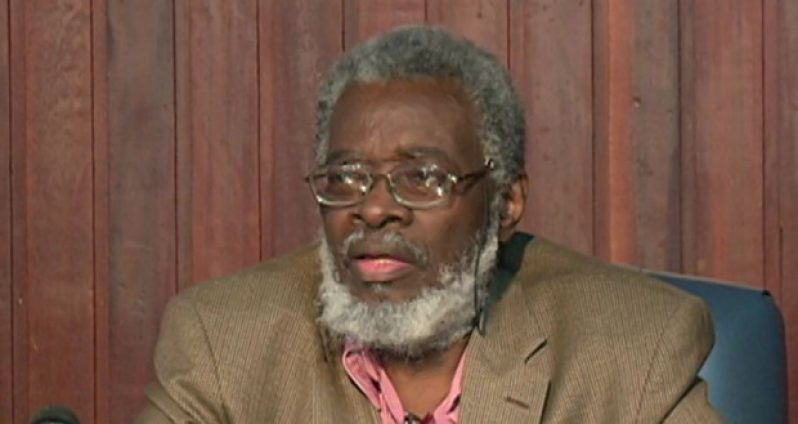HEAD of the Presidential Secretariat, Dr. Roger Luncheon has justified the existence of the National Intelligence Centre (NIC) by explaining that it is an unavoidable compromise in the protection of national interest in a modern society.Speaking Sunday on the programme, ‘Political Scope’, on the National Communications Network (NCN) , Dr. Luncheon said: “I do believe it is an element of trust between the citizens and its government that is put on the table here.”
He added: “One has to concede that in protecting national interest, in the pursuit of national security, indeed, there will be instances where issues like safeguarding rights, protecting rights, (and) invasion of privacy, these issues will be compromised.”
Dr. Luncheon, who is also Secretary of the Defence Board, noted that if done as prescribed, and if there are checks and balances that the citizenry respect and rely on, then, like in most modern societies, agencies such as the NIC are recognised as “a necessary accompaniment of the enjoyment of the trappings of a modern society.”
He opined: “You cannot get the benefits of a secure state and national interest being protected indeed, in locking ourselves up in a cocoon of constitutional rights and guarantees.”
In the circumstance, he said, the issue begs the question about the common good of the pursuit of matters from a national-interest perspective.
He further noted that the Administration is cognisant of the new threats that have to be responded to, which were not within the mandate of the other disciplined services, recognise that it would have been inappropriate to thrust them in the existing structures, hence the movement to establish the NIC.
He also pointed out that if the Government of Guyana wanted to be recognised and be treated as a State Party whose national interest must be respected, it then means that the Government has the responsibility of so doing and ensuring its protection.
“You have to be out there 24 hours a day,” he said, adding: “And all over the world, the convention of agencies dedicated to the acquisition of information; the programming analysis, and recommendation on interventions based on those recommendations, all over the world such agencies exist.”
Over the years, he said, the PPP/C Administration has established a government that has presented itself as the basis for enduring trust between the citizens and its government. He thinks that it is in that context that citizens, where ever, should keep examining the question of an invasion of their privacy. He said that it is probably inappropriate to select isolate concerns about trust when dealing with national security issues, when there is a bigger picture.
“As your administration addresses issues in a trustworthy way, not only national interest but the entirety of engagement with the people and leaders … that should be the picture that is taken into context.”
He added that this is where the administration stands in the context of its ‘comprehensive address of this issue of trust’.
“I want to believe that this administration, the People’s Progressive Party Civic (PPP/C) has earned over the years the trust of the Guyanese people to adhere to the constitution, the rule of law and indeed to have made a primary responsibility of retaining the confidence of the Guyanese people that we are doing the right thing, and making available the information on the right things.”
Dr. Luncheon noted that even if it comes to examining the issue of national security, it is on the background of an enabling environment, one that clearly establishes this as a trustworthy administration and encourages the citizens to concede that which is evidenced in the other realms is more than likely to be applied in this particular one.
When the NIC was set up by the government, the intention was not to replicate, displace or undermine the existing disciplined sources involved in similar national security, but to garner, in a comprehensive and particularly consistent way, national security information in a changing modern world.
The Cabinet Secretary also explained that national security is a never ending cycle that has to be attended to, at every second of every hour, of every day. “We have to respond to national security interest, equally important we have also to acquire information to help us to identify what those interests are, what the threat is to those interests, and what would be the best way of defending them.”
(GINA)



.jpg)









